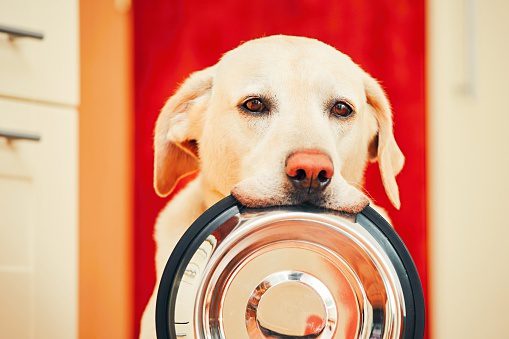
by Sara Barnhart, DVM
Everyone wants to give their dog the best of everything, right? Topping the list for most pet owners is ensuring that they are feeding the highest quality dog food possible.
Over recent years grain-free diets (see our previous post on grain-free) made with exotic ingredients by small manufacturers have gained intense popularity. Why would anyone want to feed their dog a chicken-based, gluten-filled diet when they could try pork and squash, bison and chickpeas, or kangaroo and lentils?
Two years ago Dr. Josh Stern, a veterinary cardiologist at UC Davis School of Veterinary medicine, began to notice that Golden Retrievers were being diagnosed with dilated cardiomyopathy (DCM). This condition, in which the heart weakens, becomes enlarged, and is not able to function properly, is not usually seen in Golden Retrievers and this finding prompted questions about why these dogs were affected.
Further investigation with other specialists in the field found that many of these dogs were eating grain-free diets containing peas, lentils, other legume seeds, or potatoes as main ingredients. The diets also were made with exotic protein sources such as kangaroo, buffalo, and venison and manufactured by small, boutique companies.
Many of the affected dogs were found to have low levels of blood taurine, an amino acid that dogs normally receive in their diet; low taurine levels have long been known to be associated with a form of DCM. Other dogs in the study were found to have normal taurine levels but they — along with the other taurine-deficient dogs — were being fed a grain-free, exotic protein diet produced by a boutique manufacturer. Along with cases involving Golden Retrievers and DCM, other breeds are being found with the condition as well.
The FDA issued a statement over the summer regarding cardiac disease and the possible connection with diet. Studies are ongoing to further investigate this link between dilated cardiomyopathy and diet.
So what can you do to help ensure that your dog is eating a healthy, well-balanced diet?
- If your pet does not need to be on a grain-free diet made with a specific exotic protein source, transition them to a diet containing grain and more typical protein sources such as chicken, beef or turkey. Food allergies and sensitivities are really not that common!
- Obtain dog food from a trusted company that has a good track record over many years of food production.
- Discuss diet issues with your veterinarian if you have any uncertainties or questions.
If your dog is currently eating a grain-free diet made with exotic ingredients, watch closely for signs of cardiac disease (coughing, trouble breathing, lethargy, weakness) and consult your veterinarian with any concerns.
Recent Posts
About Us
Ann Arbor Animal Hospital is a locally-owned animal hospital operating for over 90 years in Ann Arbor, MI.
